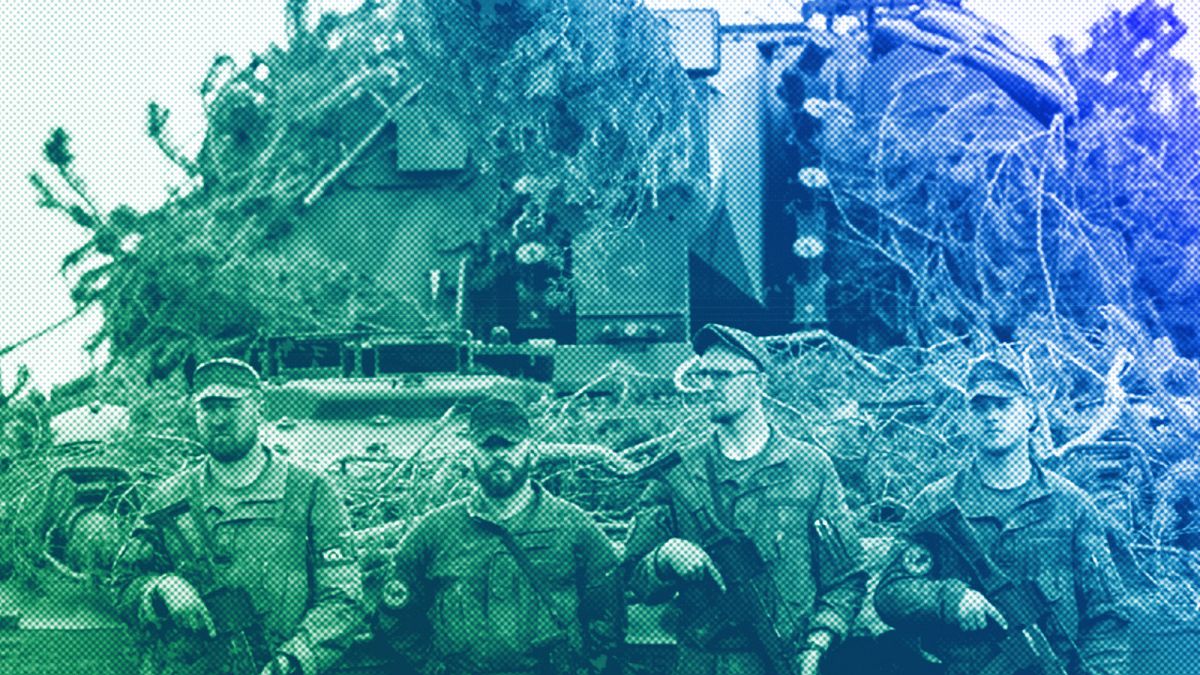The opinions expressed in this article are those of the author and do not represent in any way the editorial position of Euronews.
Today’s situation demands the EU to put foreign and defence policy alignment into the heart of the enlargement process, Laurence Boone and Nicu Popescu write.
Jean Monnet is remembered for having invented a smart technocratic gimmick – integrating the steel and coal industries of former enemies as the best way to ensure stable peace on the European continent. His technocratic method helped create the EU.
Now, as the EU prepares for future enlargements to the Balkans and East — with the bloc aiming to start membership negotiations with Ukraine and Moldova by the end of June — geopolitical and even military integration should take centre stage.
Before Jean Monnet could invent the EU, he spent a big part of his professional life developing war economies and helping democratic allies win two world wars.
In World War I he was heavily involved in looking for affordable wheat and boats, and in World War II he worked hard to find ways to boost the production of tanks and bombers through the so-called US Victory programme.
Before he could persuade the French Government to initiate the European and Steel Community in 1950, he first had to persuade US President Roosevelt to ramp up dramatically the production of tanks and bombers in the early 1940s to make European integration possible.
Peace, he knew, could only be won with weapons. Military victory on the battlefields made European integration and the “Monnet method” of technocratic integration possible.
Responding to war by expanding peace
As the biggest war on European soil since World War II rages on the continent and its outcome is uncertain, it is time for the EU to reinsert a sense of history into the usual process of technocratic integration.
It is time to remember that the EU could only be technocratic because of peace. And peace required military power in the shape of alliances and weapons. Weapons helped the democratic West and the EU survive, win, and defend their victories.
The war has forced Europeans to engage, yet again, in a conversation on how to turn Europe into a geopolitical power. But as Europe gears up to do more in defence policy and industry, the way enlargement is pursued also needs to change.
Just as the EU needs to adapt its defence spending, arms production, budgeting, and energy priorities to the war, its enlargement policy should also start integrating these measures.
By inviting Ukraine, Moldova, and Georgia to become candidate countries and accelerating talks with some of the Western Balkan countries, the EU has responded to war by deciding to expand its peace project further.
But now the process itself also has to be upgraded. The existing methodology of EU enlargement has two pillars — monitoring the implementation of the acquis communautaire through accession’s 35 chapters and rigorous monitoring of the so-called fundamentals — justice sector reform, the rule of law and democratic standards.
These cornerstones of the enlargement process need to be kept. But they need to be reinforced with a third, equally fundamental alignment — on defence and security policies.
Enlargement policy has to match defence needs
The EU enlargement methodology is vigorously monitoring the implementation of EU standards in areas ranging from the free movement of goods to standards in the production of plastics.
However, it now needs to monitor defence issues with equal vigour as well, including military spending, interoperability, and deeper military and intelligence cooperation with accession countries.
Today’s situation demands the EU to put foreign and defence policy alignment into the heart of the enlargement process.
For most previous rounds of EU enlargement, these aspects were tackled through NATO, and this worked well. However, not all EU candidate countries are on track to join NATO, and significant parts of the US political establishment have strong isolationist tendencies.
Willingly or not, especially if US isolationism deepens, the EU must pursue more ambitious goals in the military field on its own but also vis-à-vis its future members. The EU cannot outsource all the security and defence dimensions of its enlargement to those countries which aren’t in the process of joining NATO.
The European Union has to upgrade its enlargement criteria to have a much more intrusive set of requests regarding the security and defence policies of future EU member states, with a view to converging to NATO criteria, as the EU is a strong pillar of NATO.
Just as the fight against corruption is a “fundamental”, so is greater defence policy alignment for the rest of Europe.
Laurence Boone is a former French secretary of state for European affairs and a council member at the European Council on Foreign Relations (ECFR). Nicu Popescu is a former deputy prime minister of Moldova and a distinguished policy fellow at ECFR.
At Euronews, we believe all views matter. Contact us at view@euronews.com to send pitches or submissions and be part of the conversation.

